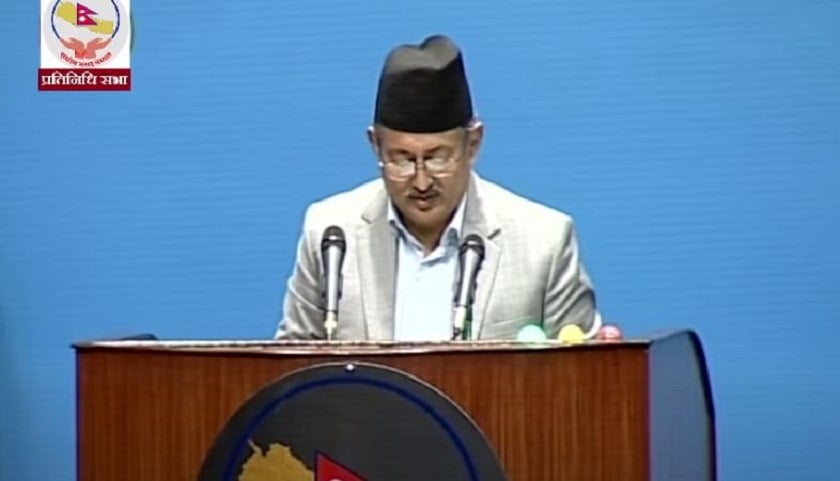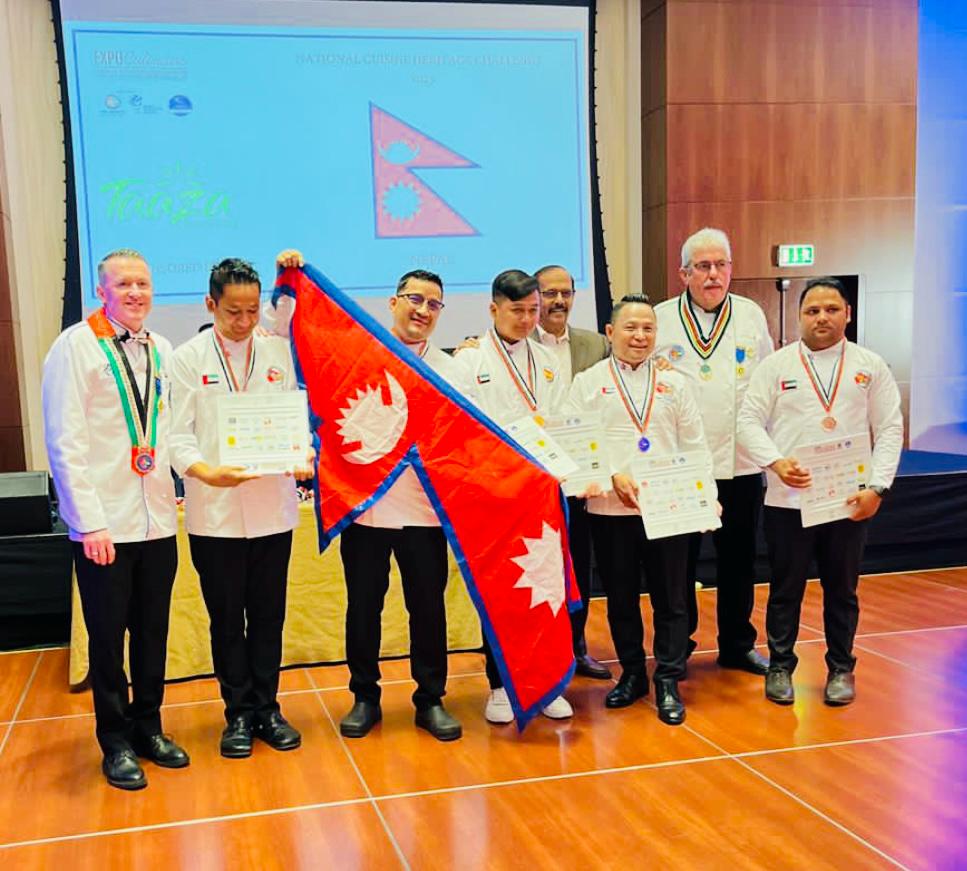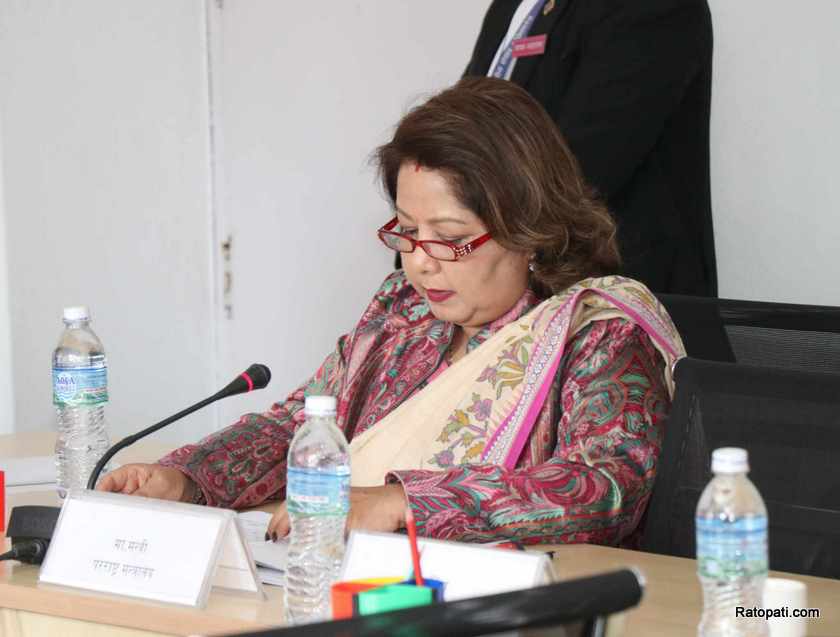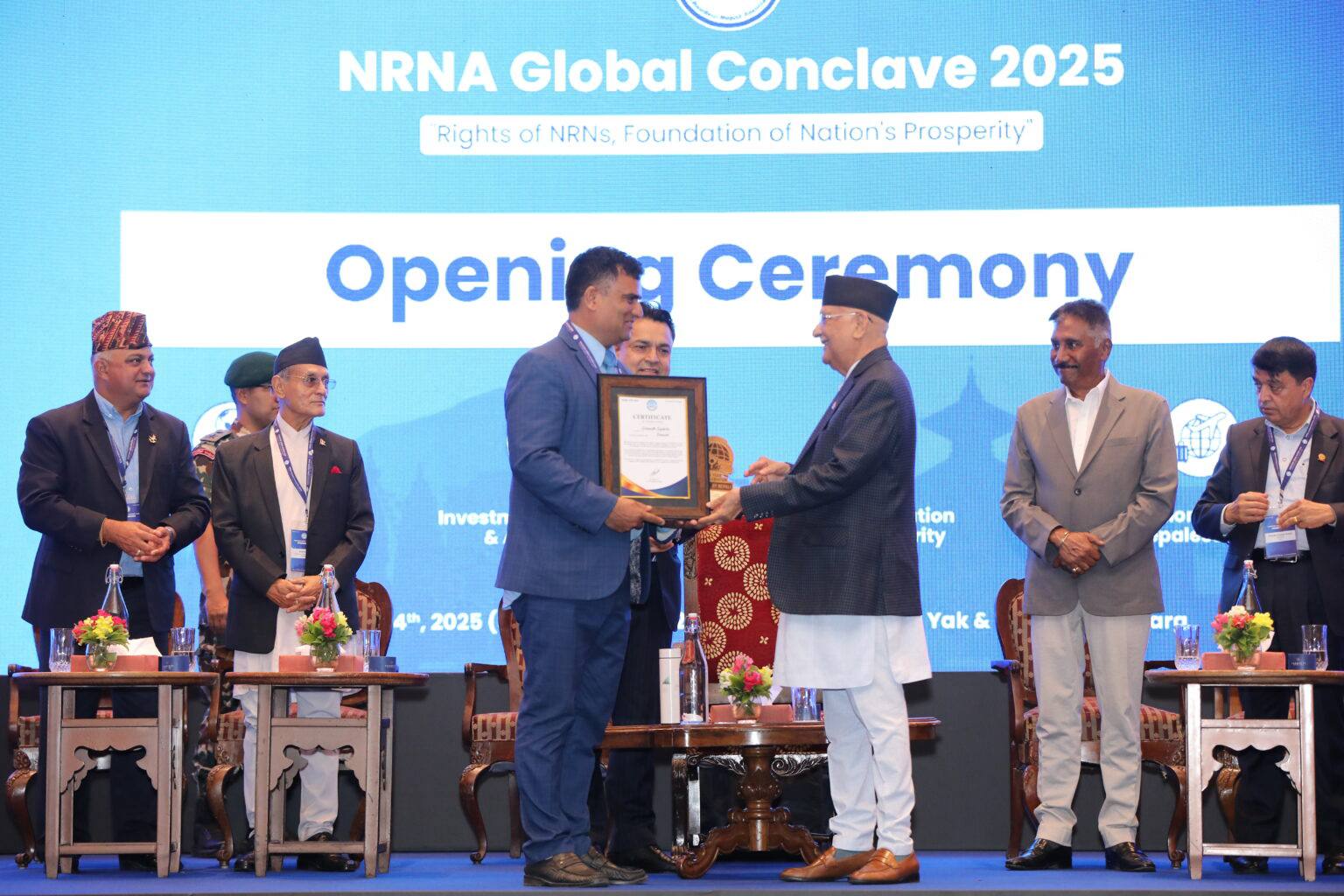Home Minister Khand clarifies that Nepal has not been a part of USA’s SPP

KATHMANDU, June 16: Home Minister Bal Krishna Khand has maintained that Nepal has not been a part of the United States of America’s State Partnership Program.
Addressing the House of Representatives (HoR) meeting on Thursday, Minister Khand maintained that Nepal has so far not even thought of being part of the program.
Minister Khand also clarified that Nepal and USA have been practicing good will visits among military personnel for a long period of time. “The Nepal Army has been receiving training and support from foreign countries.”
“I want to clarify on the behalf of the government that Nepal has not decided to be a part of USA’s SPP and it will not be,” Minister Khand said.
What is SPP?
The State Partnership Program (SPP) is a joint program of the United States Department of Defense (DoD) and the individual states, territories, and District of Columbia.
The State Partnership Program has been successfully building relationships for over 25 years and now includes 85 partnerships with 93 nations around the globe.
The SPP evolved from a 1991 U.S. European Command decision to set up the Joint Contact Team Program in the Baltic Region with Reserve component Soldiers and Airmen. A subsequent National Guard Bureau proposal paired U.S. states with three nations emerging from the former Soviet Bloc and the SPP was born, becoming a key U.S. security cooperation tool, facilitating cooperation across all aspects of international civil-military affairs and encouraging people-to-people ties at the state level.
This cost-effective program is administered by the National Guard Bureau, guided by State Department foreign policy goals, and executed by the state adjutants general in support of combatant commanders and U.S. Chief of Mission security cooperation objectives and Department of Defense policy goals.
Through SPP, the National Guard conducts military-to-military engagements in support of defense security goals but also leverages whole-of-society relationships and capabilities to facilitate broader interagency and collateral engagements spanning military, government, economic and social spheres.










Leave Comment